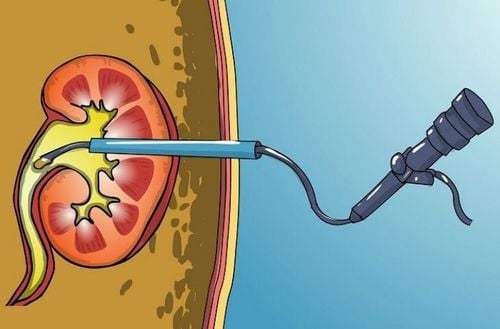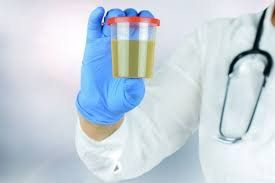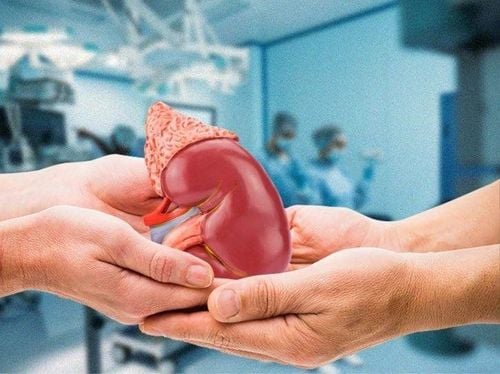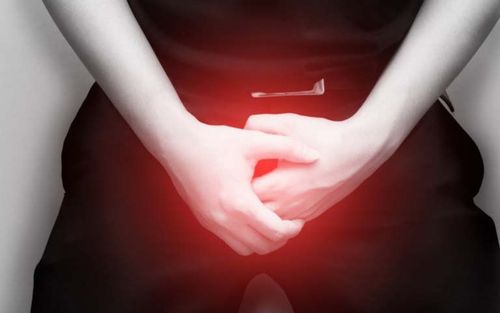After inguinal hernia surgery, patients need to be monitored and cared for carefully and properly to recover and prevent complications after surgery. Below are possible complications and solutions to reduce complications after inguinal hernia surgery.
1. Complications after inguinal hernia surgery
Inguinal hernia surgery is a fairly common surgery and has minimal risk. However, about 10% of hernia cases return at some location after surgery. About 2-4% of hernias return within three years.
Other potential complications that can occur after inguinal hernia surgery:
1.1. Early complications
- Postoperative bleeding
- Hematoma and fluid in the scrotum affect the blood supply to the testicles
- Testicular pain and swelling (in men)
- Pain and numbness in the groin area due to a damaged or trapped nerve during surgery.
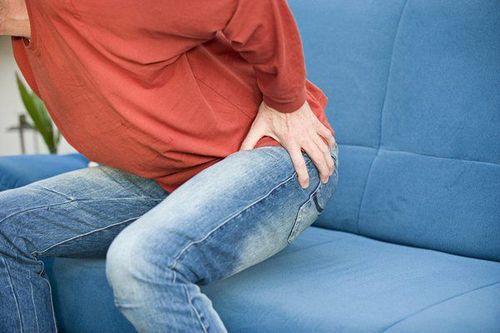
- Damage to the vas deferens – the tube that carries sperm to the testicles.
- Surgical site infection
- Testicular strangulation due to spermatic cord obstruction
Complications after inguinal hernia surgery are at higher risk in patients over 50 years old or with other diseases such as cardiovascular disease or respiratory disease.
1.2. Later complications
Patients after surgery may experience later complications such as:
- Recurrent hernia: This complication is common in the elderly, direct inguinal hernia.
- Prolonged pain: Pain will usually gradually decrease after 2 years. This complication is common in open surgery through the direct anterior approach.
- Testicular atrophy and decreased fertility due to compression of the blood vessels that nourish the spermatic cord and testicles, leading to malnutrition and damage.
- Depending on the inguinal hernia surgery method, especially open surgery, it can cause decreased sensation below the surgical scar or in laparoscopic surgery on the outer thigh due to stimulation or damage to the sensory nerves in the area.
2. What should be avoided after inguinal hernia surgery?
After surgery, to get the best recovery period, the patient should arrange to rest at home for a few days, and have a lifestyle and nutrition regimen appropriate to their physical condition. After inguinal hernia surgery, the patient does not need to abstain from any food to provide enough nutrients needed for the body.
- Do not eat fully at once
- If the surgical wound is still swollen, the patient should not eat sticky rice until the swelling is gone
- Drink plenty of water to provide enough water for the body
- Limit the consumption of dairy products such as cheese, butter, cream, etc. Choose a diet rich in fiber.
- However, fiber should be added slowly after inguinal hernia surgery; otherwise, it will cause bloating, flatulence, and discomfort
- Eat a variety of green vegetables and fresh fruits rich in fiber and vitamins for the body, to avoid constipation. If constipation happens, patients can use an enema but do not try to push because it can cause the inguinal hernia to return.
- Avoid spicy foods, beer, and alcohol. Should eat crab and shrimp to help the wound heal quickly

3. How to reduce complications after inguinal hernia surgery?
Although complications after inguinal hernia surgery can occur in anyone, we can reduce complications by:
- Early inguinal hernia surgery: If treated promptly and properly, it will help increase the chance of successful treatment. Patients can shorten the time in hospital and rest.
- Choosing a reputable surgical hospital: When performing inguinal hernia surgery at reputable hospitals, patients will be operated on directly by good doctors, and modern medical equipment to limit complications after inguinal hernia surgery.
- Attentive post-operative care: After surgery, patients are taken care of carefully, the surgical wound is cleaned, and the bandage is changed daily to help limit complications of infection.
- Eating and living properly: Patients after inguinal hernia surgery need to pay attention to eating to increase adequate nutrition for the body through daily meals; need to rest, and limit strenuous exercise. Patients can exercise daily but at a moderate level, avoiding strenuous exercise that can threaten their health.
Usually, the doctor will schedule a follow-up visit about 7-10 days after surgery. The doctor will check whether the inguinal hernia incision has completely healed or in special cases, the patient must take antibiotics for a few more days. You will also be advised in detail about when you can resume sports activities, heavy labor, and lifting.
Vinmec International General Hospital System is a leading hospital in the treatment of inguinal hernia with many advantages:
- Comprehensive treatment care model, enhancing patient recovery after surgery, patients recover quickly, and return to daily activities as soon as possible: Eating, walking, exercising, good post-operative pain relief, and short hospital stay (about 1 day).
- Vinmec's Hybrid operating room is the most modern operating room system in the world nowadays, integrating operating rooms and advanced imaging diagnostic equipment (CT scan, MRI, ultrasound...) to help reduce surgery time and bring the best surgical results for patients.
- In anesthesia and resuscitation, Vinmec adheres to anesthesia protocols, anesthesia safety instructions, and anesthesia checklists for 100% of surgeries to minimize incidents and side effects
Please dial HOTLINE for more information or register for an appointment HERE. Download MyVinmec app to make appointments faster and to manage your bookings easily.
To arrange an appointment, please call HOTLINE or make your reservation directly HERE. You may also download the MyVinmec app to schedule appointments faster and manage your reservations more conveniently.
